
The Romaniote Jews or the Romaniotes are a Greek-speaking ethnic Jewish community native to the Eastern Mediterranean. They are one of the oldest Jewish communities in existence and the oldest Jewish community in Europe. The Romaniotes have been, and remain, historically distinct from the Sephardim, some of whom settled in Ottoman Greece after the expulsion of Jews from Spain and Portugal after 1492.

Ashkenazi Jews, also known as Ashkenazic Jews or Ashkenazim, constitute a Jewish diaspora population that emerged in the Holy Roman Empire around the end of the first millennium CE. They traditionally spoke Yiddish and largely migrated towards northern and eastern Europe during the late Middle Ages due to persecution. Hebrew was primarily used as a literary and sacred language until its 20th-century revival as a common language in Israel.
This is a selected bibliography and other resources for The Holocaust, including prominent primary sources, historical studies, notable survivor accounts and autobiographies, as well as other documentation and further hypotheses.
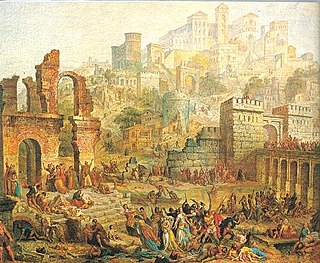
The Rhineland massacres, also known as the German Crusade of 1096 or Gzerot Tatnó, were a series of mass murders of Jews perpetrated by mobs of French and German Christians of the People's Crusade in the year 1096, or 4856 according to the Hebrew calendar. These massacres are often seen as the first in a sequence of antisemitic events in Europe which culminated in the Holocaust.
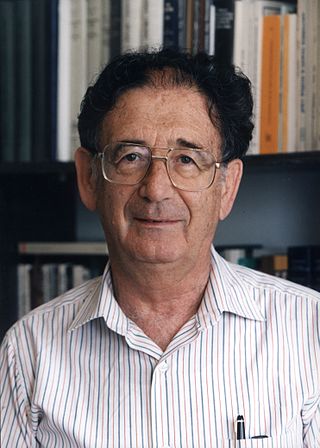
Yehuda Bauer is a Czech-born Israeli historian and scholar of the Holocaust. He is a professor of Holocaust Studies at the Avraham Harman Institute of Contemporary Jewry at the Hebrew University of Jerusalem.
Michael Robert Marrus was a Canadian historian of the Holocaust, modern European and Jewish history and international humanitarian law. He is the author of eight books on the Holocaust and related subjects.
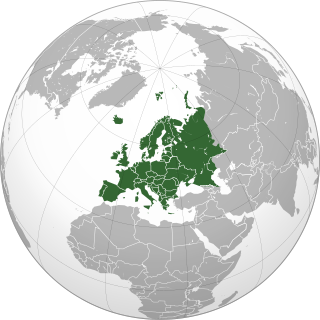
The history of the Jews in Europe spans a period of over two thousand years. Jews, an Israelite tribe from Judea in the Levant, began migrating to Europe just before the rise of the Roman Empire. Although Alexandrian Jews had already migrated to Rome, a notable early event in the history of the Jews in the Roman Empire was the 63 BCE siege of Jerusalem.
The Encyclopedia of the Holocaust (1990) has been called "the most recognized reference book on the Holocaust". It was published in an English-language translated edition by Macmillan in tandem with the Hebrew language original edition published by Yad Vashem, the Holocaust Remembrance Authority in Israel. All its contributors are reputable Holocaust scholars and academics. Although the encyclopedia is easy to read and use and contains no disturbing pictures, it is not recommended for users younger than high school age.

Leon Sperling was a Polish Olympic footballer.

Ludwik Gintel was a Polish Olympic footballer.
The League of British Jews was an Anglo-Jewish anti-Zionist organization that opposed the Balfour Declaration giving British support for the establishment of a Jewish homeland in Palestine.
Ilona Vincze-Krausz or Kraus was a Hungarian-Israeli teacher of current classical piano pedagogues.
Shaul Stampfer is a researcher of East European Jewry specializing in Lithuanian yeshivas, Jewish demography, migration and education.

Steven M. Cohen is an American sociologist whose work focuses on the American Jewish Community. He served as a Research Professor of Jewish Social Policy at Hebrew Union College-Jewish Institute of Religion and as Director of the Berman Jewish Policy Archive at Stanford University before his July 2018 resignation stemming from allegations of sexual harassment.
Ezra Spicehandler was an American rabbi, writer, editor and educator specializing in modern Hebrew literature.
Schaal, sometimes spelled Shaal or Shael, is a Sephardic Jewish and Dutch Surname, common among Jews of French, East-European and Middle Eastern background, descended from Spanish exiles.
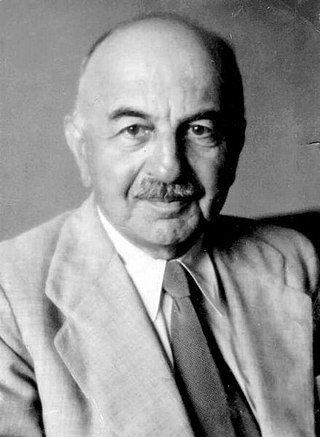
Arthur Menachem Hantke was a jurist, lawyer and economist, one of the leaders of Zionist movement in Germany and one of the leaders of the Zionist fundraising organization Keren Hayesod.

Esther Farbstein is an Israeli historian, researcher, author, and lecturer. Considered the leading Haredi scholar of the Holocaust, she focuses on the spiritual responses of Jews to Nazi persecution. She has introduced new sources for academic research on the Holocaust, and has also shepherded the incorporation of Holocaust education in Haredi girls schools. In 1994, she founded and became head of the Center for Holocaust Studies at Michlalah–Jerusalem College in Bayit Vegan, Jerusalem. She is the author of numerous books, articles, and monographs in Hebrew and English.
Dan Michman is a Jewish historian. He is the head of the International Institute for Holocaust Research at Yad Vashem in Jerusalem and incumbent of the John Najmann Chair of Holocaust studies.
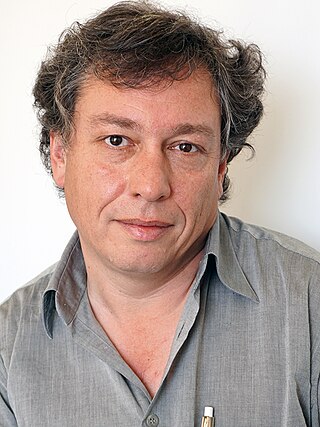
Vladimir Levin is an Israeli historian specializing in east European Jewish history. Since 2011, he has been a director of the Center for Jewish Art at the Hebrew University of Jerusalem.










